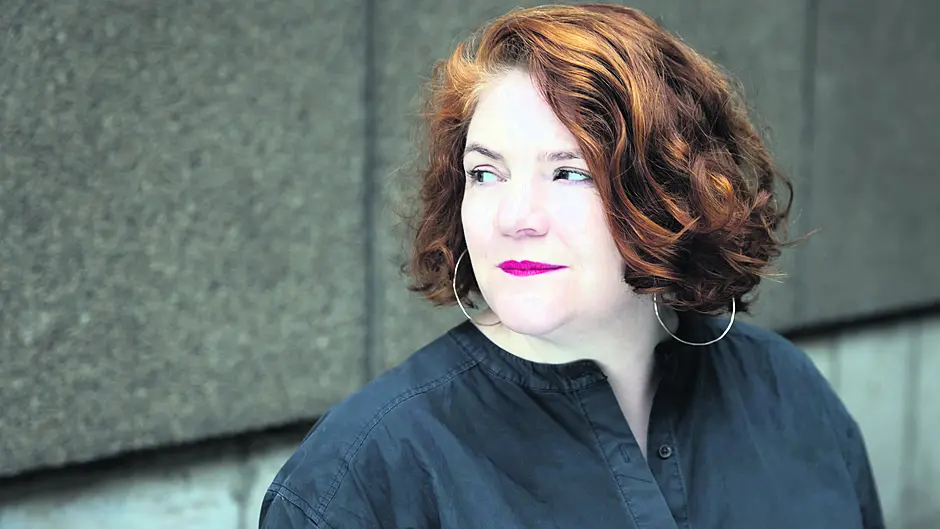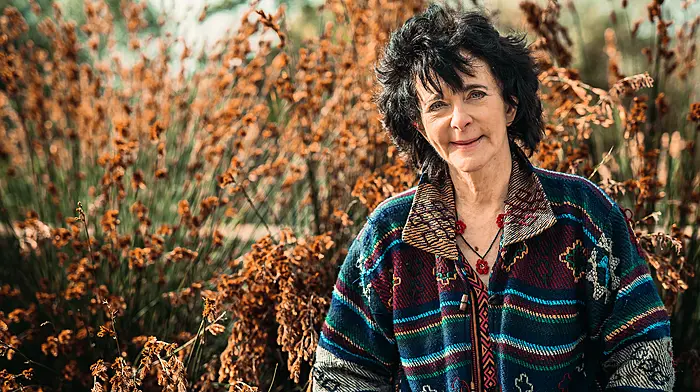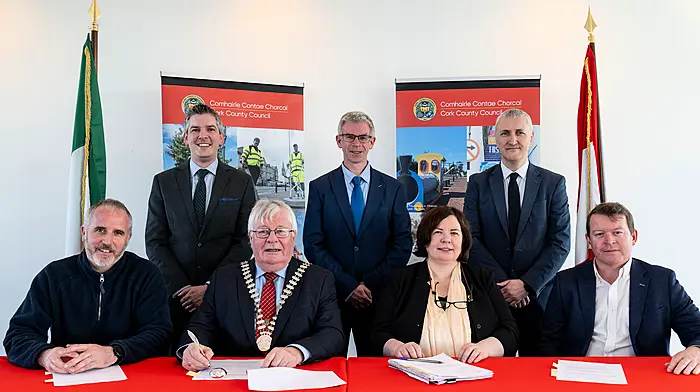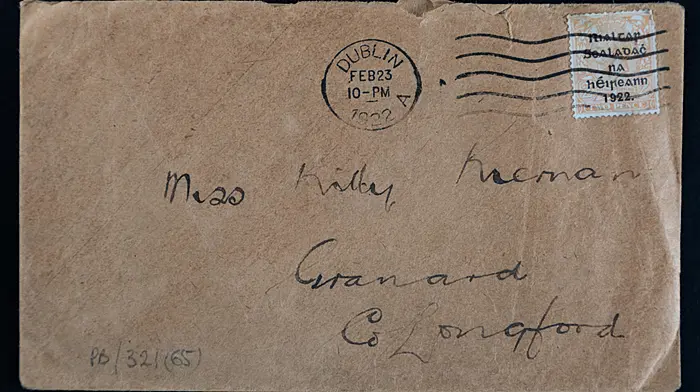One of the key roles in our national theatre is being conducted several days a week from West Cork, by a woman who says that she honed her storytelling skills in her native town
THERE is a literary and cultural coincidence in two women – from opposite ends of the country – sharing a life-long passion for the theatre and taking on two of the top jobs in our national theatre, The Abbey.
Bantry’s Jen Coppinger is head of producing at The Abbey Theatre, while Donegal’s Caitríona McLaughlin is its artistic director.
The literary allusion continues when you consider that the Abbey’s recent, successful run of Brian Friel’s Translations is set in a rural hedge school in Donegal in the early 1900s and Caitríona’s own great grandfather ran such a school.
By living in a rural area – in Jen’s case it was Pearson’s Bridge, five miles outside Bantry – both women grew up not having a direct, personal, or immersive, link with the theatre.
The fact that as recently as last month both ‘country girls’ worked with novelist and playwright Edna O’Brien in preparation for her latest offering – Joyce’s Women – at The Abbey is prescient too.
Although Jen didn’t have much access to theatre in West Cork when she was younger, she – as a former member of the board of Youth Theatre Ireland – is thrilled that Glengarriff Youth Theatre has become a member in recent years.
Jen said her guiding principle was a love of storytelling. ‘As the youngest of seven,’ she said, ‘you observe a lot and I always felt a draw towards storytelling.’
Jen – the daughter of the late Mickie Coppinger, a cattle dealer who was well known throughout West Cork, and mother Breda – said it was while reading philosophy at Trinity that she was able to develop her love of theatre.
She began by stage managing and producing work in college and it was obvious to her that the organisational and practical skills she inherited from her parents would help her in her chosen career.
There was, she said, no eureka moment. There was instead a kind of deep dive into that world from the belly of a darkened auditorium as the work evolved on stage.
Watching the work progress, and seeing how creative people make a piece of theatre alongside actors, became her life’s work.
At the age of 21, Jen worked for a time as a literary assistant at the Abbey, but a postgrad in arts administration in UCD gave her the skills needed for cing.
‘We learned a lot about all aspects – from marketing to contracts and accounting – very practical things that are necessary for producing,’ she said.
Her work with the Irish Theatre Institute helped her to hone her skills, so too did her time with the Arts Council, where she was project manager for the laureate for irish fiction, novelist Anne Enright.
Jen was appointed head of producing at the Abbey Theatre in January 2018. Her role means she works closely with the artistic director of a play, and is involved in all aspects of production across the Abbey’s programme. It was Jen who set up the recent tour of Translations, set the budget, and worked closely with Caitríona McLaughlin, who is not only the Abbey’s artistic director she also directed this play too.
‘It was really great to work with Caitríona,’ said Jen. ‘We are both very passionate about touring and giving access to work outside of Dublin because when we were growing up it wasn’t so easy to access the arts.’
Having said that Jen acknowledged how ironic it is that Covid changed everything in terms of her work practice.
‘Since the pandemic,’ said Jen, ‘I have been able to work a couple of days a week from West Cork.’
In the first year of Covid, in 2020, she recalls how everything on stage was cancelled, but as the national theatre they had a responsibility to give work to artists and to keep their staff employed.
‘We had to pivot very quickly during the early days of Covid,’ she said, ‘and that involved a huge project called Dear Ireland that had three parts to it.’
The first part involved 50 writers writing a short piece to be performed by 50 actors. Due to restrictions, all of the work was self-taped and done remotely across the country, and across the world.
The second part of Dear Ireland concentrated on the Abbey audience. Jen said it was an opportunity for them to write how the pandemic was affecting them while the third part focused on community work and community groups.
‘We also did other projects such as a Bloody Sunday commemoration and Patrick Kavanagh’s The Great Hunger, so essentially we were as busy as we would normally be in any given year.’
In June 2021, they started to bring work back to the theatre.
‘We started our first shows with audiences of just 50 people in our auditorium but continued to work and adapt to all of the restrictions,’ said Jen.
‘We went from 50 people to a 50% capacity. Then, to a finishing time of 8pm. Now, we are back to full capacity and are enjoying full houses once again.
Work, for Jen, is a moveable feast. It might involve days that start at 10am and finish at 11pm for a few weeks in a row.
‘I probably work too much but so do most of the people I know in theatre because we love the work that we do,’ she said.
When not in production, Jen is sometimes able to go to West Cork on a Thursday evening. It means she can get to the market in Bantry on a Friday morning, before working from home for the rest of the day.
In a recent interview, Jen was asked what she would decree if she were in charge of everything.
She didn’t hesitate. ‘Equal rights for women,’ was her reply. By that she said she meant ‘50%-50% representation in our Dáil, on our stages, on our airwaves, in our media, and in all parts of society.’
How fantastic then – for Irish women everywhere – that there are now two powerful ‘country girls’ wielding such influence on our national stage.







